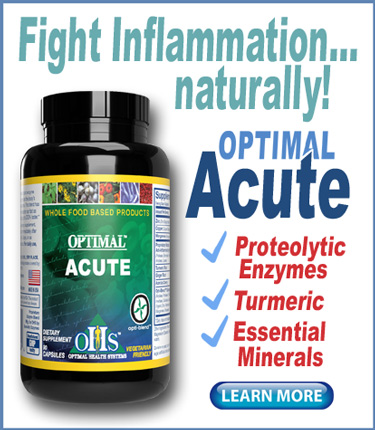Ginger (Zingiber officinale) is one of the most commonly consumed dietary condiments in the world. This popularity is due to the fact that it not only helps other foods taste better, but also because it has been utilized as a medicinal for thousands of years.
The 2011 edition of Herbal Medicine notes, “Indians and Chinese are believed to have produced ginger as a tonic root for over 5000 years to treat many ailments, and this plant is now cultivated throughout the humid tropics, with India being the largest producer…. At least 115 constituents in fresh and dried ginger varieties have been identified by a variety of analytical processes.”
The list of ailments ginger is traditionally used for is long: colds, nausea, arthritis, migraines and hypertension, to name a few. In the modern era ginger has also been studied for anti-cancer properties.
Now new research has documented the potential role ginger can provide in controlling inflammation in autoimmune disease patients.
Specifically, researchers at the University of Colorado School of Medicine examined the effects of ginger supplements on neutrophils. Neutrophils, a type of white blood cell, are the immune system’s first line of defense against infection and have the ability to kill invading pathogens.
The study primarily focused on neutrophil extracellular trap formation, or NETosis. By examining this process researchers can assess if inflammation is, in fact, reduced.
In this study, the researchers concluded that their findings did clearly indicate that the consumption of ginger enabled the neutrophils in healthy people to become more resistant to NETosis.
This is a crucial finding as the process of NETosis promotes the type of inflammation and clotting that contributes to many autoimmune diseases. The most common of these diseases include lupus, antiphospholipid syndrome, and rheumatoid arthritis.
The researchers also noted that the findings suggest the ginger supplements would also be beneficial in treating people with COVID.
RELATED
For more research highlighting the anti-inflammatory benefits of ginger check out our earlier post:
Ginger: Three studies in 2021 highlight plant’s amazing anti-inflammatory properties
“There are a lot of diseases where neutrophils are abnormally overactive. We found that ginger can help to restrain NETosis,” says co-author of the study, Professor Kristen Demoruelle from the University of Colorado School of Medicine, in a media release. “This is important because it is a natural supplement that may be helpful to treat inflammation and symptoms for people with several different autoimmune diseases.”
In their clinical trial, the researchers assigned a daily ginger supplement to study participants for seven days.
The 100 mg supplements contained 20 mg of gingerols—the main bioactive compound in ginger that is known to provide the majority of ginger’s documented medicinal properties.
The trial was small with only nine participants; however, the same researchers had already conducted a pilot clinical study to document the extent to which the anti-neutrophil properties we observed in vitro and in mouse models. From this perspective the human trial can be seen as corroboration that the earlier results also extend to humans.
“Our research, for the first time, provides evidence for the biological mechanism that underlies ginger’s apparent anti-inflammatory properties in people,” says Professor Jason Knight from the University of Michigan, another co-author of the study.
“There are not a lot of natural supplements, or prescription medications for that matter, that are known to fight overactive neutrophils. We, therefore, think ginger may have a real ability to complement treatment programs that are already underway.”
The study was published in JCI Insight in September 2023.
Ginger is one of the anti-inflammatory ingredients found in the following Optimal Health Systems products:
– – –
Sources: JCI Insight, NIH.gov, Wikipedia/Gingerol.


